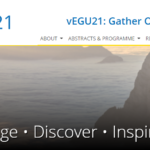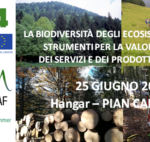Workshop “Impacts of climate change on ecosystem services”
Universities for EXPO 2015: Milan 23 June 2015
Humanity is called to cope with unprecedented challenges. The scale of human impact on our planet has been increasing decade after decade. The world population has more than doubled in less than 50 years and will probably reach 9 billion in 2040. Economic indicators of wealth (such as income per capita or poverty gap ratio) have been improving, though not homogeneously over the world.
However, the targets of eradicating extreme poverty and hunger, reducing child mortality, achieving universal primary education, providing drinking water and sanitation facilities are far from being reached and might become more difficult to achieve in the near future. Also, there is concern that the functioning of our earth may be imperilled by the increasing stress due to human activities. There has been an enormous increase in the emission of greenhouse gases (GHG, mainly carbon dioxide, methane and nitrous oxide) due to fossil fuel combustion, land-use change and agricultural practices.
This has translated into GHG concentrations unprecedented in the past 800,000 years and in the global warming of our planet, as unequivocally pointed out by the scientific community. Air and water pollution and overexploitation of natural resources (such as marine fish stocks) together with global climate change may decrease the biodiversity of our planet and impair the functioning of ecosystems. This may have important economic and social consequences because the services freely provided by ecosystems to humanity (such as water purification, crop pollination, protection from erosion etc.) are enormously valuable. A prudent estimate has set the monetary value of these services to twice the global GNP. Therefore devising paths towards the sustainability of our biosphere will be a mandatory task for humanity in the near future.
The one-day workshop aims at bringing together world-known experts who will illustrate the impacts of climate change on ecosystem services. Also, they will outline the possible policies and technical advancements that could shape sustainability paths. The presentations will be scientifically up to date, although they will not indulge to technicalities in order to reach a diversified audience.
As the workshop will be immediately followed on June 24 by the other joint workshop organized by WFO and focusing on the impacts of climate change on agriculture, the present workshop will not address those problems systematically. Once the program of the WFO workshop is available, the agenda may be slightly adapted to reach a full co-ordination between the two events.
The event is free (registration needed) and will be held in English; simultaneous translation is available.
List of speakers
Carlo Carraro, Centro Euromediterraneo sui cambiamenti climatici, Fondazione ENI Enrico Mattei, Venezia (Italy)
Alessandro Cescatti, JRC, Ispra (Italy)
Stefano Consonni, Politecnico di Milano, Milano (Italy)
Andreas Fischlin, ETH, Zurich (Switzerland)
Christian Körner, University of Basel, Basel (Switzerland)
Franco Miglietta, IBIMET-CNR, Florence (Italy)
Stephen Palumbi, Hopkins Marine Station, Stanford University, Pacific Grove (USA)
Mercedes Pascual, University of Chicago, Chicago (USA)
Renzo Rosso, Politecnico di Milano, Milano (Italy)
Each speaker will make a 30-35 minute presentation followed by a 10-15 minutes discussion with the public. At the end of the day there will be further room for open discussion.
Organisers
Marino Gatto (Politecnico di Milano), Frank Raes (JRC), and Roberto Zoboli (Università Cattolica, Milano) in collaboration with the European Commission.
segnalato da Marino Gatto
Info Autori
Scuola di scienze Agrarie, Forestali, Alimentari e Ambientali (SAFE-UNIBAS)







